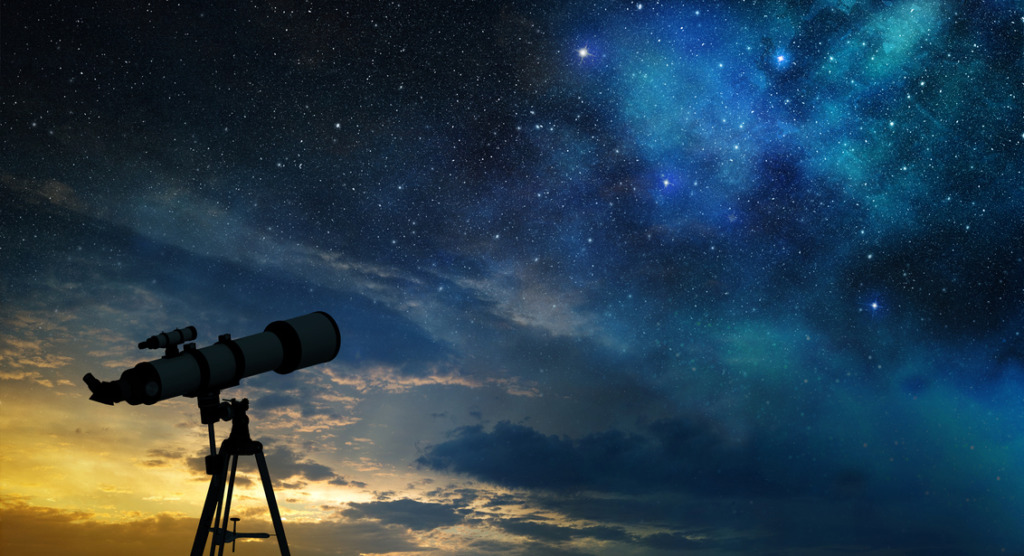During a training session for hospice volunteers, the facilitator asked trainees to describe what they imagined heaven would look like. I recall one person telling the group that for her, the word that came to mind was “crowded.” As you can imagine, her answer got a laugh from the group, but as I watched images from the James Webb space telescope televised a few weeks ago, I remembered her response and all I could think of was how limited we humans are when it comes to thinking about heaven.
It’s no wonder St. Paul wrote, “No eye has seen, nor ear heard, nor the human heart conceived, what God has prepared for those who love him” (1 Cor 2:9).
In 1990, when the Hubble Telescope was sent into space, scientists were astounded by what they identified as trillions of galaxies. How much more amazed must they have been as they looked through the James Webb, which offers an even clearer image of stars, black holes and gases that navigate within particular galaxies?
If nothing else, science should expand our sense of awe and wonder regarding the grandeur and incredible omnipotence of God. Yet, after this most recent telescope was launched and deemed a success, it was disappointing that none of the scientists who were interviewed mentioned God or said anything about the presence of a supernatural being as the Creator.
As they gazed into infinity, how could they not be moved to fall on their knees? How was it that they did not want to cry out with the psalmist?
“O Lord, our Sovereign, how majestic is your name in all the Earth! You have set your glory above the heavens… When I look at your heavens, the work of your fingers, the moon and the stars that you have established; what are human beings that you are mindful of them, mortals that you care for them? Yet you have made them a little lower than God” (Ps 8:1-5).
How easy it is to lose sight of the fact that we are not God. At a cost of $10 billion, untold hours of research and hands-on engineering, a dream had come true, but even amid all that success, human limitations are evident.
A few weeks after the launch, the James Webb was hit by a micrometeor about the size of a grain of sand that collided unexpectedly with the telescope, causing irreversible damage to one of its mirrors. It serves as a much-needed reminder that some things still remain beyond the control of humans, and that should give us pause.
It’s been reported that toward the end of his life, Albert Einstein looked at all he had discovered and wrote, “I feel as if I’m standing in a cloud, and I’m surrounded by what I can only call Mystery.”
Though he never claimed to be a religious man, Einstein’s respect for mystery and miracles is well documented. When addressing young people, he advised them: “Never lose Holy Curiosity” and again “The most beautiful experience we can have is the mysterious. It is the fundamental emotion that stands at the cradle of true art and true science.”
This explains why the Catholic Church has never debunked authentic science because it should always lead us to the realization that only a Supreme Being could orchestrate a world that is so complex and yet so profound. If gazing into the heavens while here on Earth is a source of awe, what must it be like for those who see the world from the realm of the Beatific Vision?
Failing to see God in the wonders of creation reminds me of another quote from Einstein: “Two things are infinite: the universe and human stupidity; and I’m not sure about the universe.”
When science leads us deeper into the heart of God, we are on solid ground because it invites us to acknowledge and celebrate our dependence on God, who has promised that new heavens await us.
In the Second Letter of Peter, we are reminded, “While waiting for this, make every effort to be found without stain or defilement, and at peace in his sight” (2 Pt 3:14).
No one exhibited this better in her life on Earth than Mary, who was assumed into heaven body and soul. Her assumption into heaven prefigures the final resurrection of the just, whose souls will be reunited with their bodies. Then, like Mary, these souls will enjoy the fullness of the Beatific Vision of God.
Let us pray that when the time comes, we will be numbered among them, and will at last realize the full glory of God.

